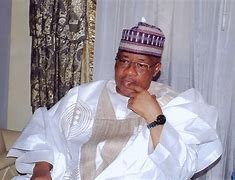Former Military President of Nigeria, General Ibrahim Badamasi Babangida (IBB), has expressed deep regret over the annulment of the June 12, 1993, presidential election, acknowledging that he would act differently if given another chance.
He made this revelation during the launch of his autobiography, A Journey in Service, held in Abuja on Thursday.
Speaking after former Vice-President Yemi Osinbajo reviewed the book, Babangida took full responsibility for the controversial decision to cancel what has been widely regarded as Nigeria’s freest and fairest election.
The contest was between Chief Moshood Abiola of the Social Democratic Party (SDP) and Bashir Tofa of the National Republican Convention (NRC).
READ ALSO: June 12- Full Speech Of President Bola Tinubu To Mark This Year Democracy Day
“I regret June 12. I accept full responsibility for the decisions taken, and June 12 happened under my watch. Mistakes and missteps happened in quick succession,” Babangida admitted.
In previous interviews, IBB had defended the annulment, arguing that while the election was free and fair, Nigeria was not ready for democratic governance at the time. He reiterated that position but acknowledged, for the first time, that the decision was unfortunate.
“June 12 was accepted by Nigerians as the best of elections in Nigeria. It was free and fair. But unfortunately, we cancelled that election.
I used the word unfortunately, for the first time. We were in government at the time and we knew the possible consequences of handing over to a democratic government,” Babangida stated.
READ ALSO: DSS Warns Against Protests On June 12
He explained that security concerns played a major role in the decision to annul the election, as the military feared another coup would follow shortly after handing over power.
“Forget about the wrong things that happened in politics. The issue of security of the nation was a threat, and we would have considered ourselves to have failed if, six months after handover, there was another coup.
I went through a coup d’état and survived it. We knew that there would be another coup, but not many people believed what we said,” he added.
Babangida revealed that after annulling the election, plans were underway to hold another election by November 1993, with improved measures to ensure stability.
READ ALSO: Controversial Singer Portable Granted Bail By Court
However, the political hostility that followed the annulment made it impossible for him to execute this plan. Instead, an Interim National Government (ING) was established, which was later overthrown by General Sani Abacha in a military coup.
The annulment of the June 12 election remains one of the most contentious events in Nigeria’s history, sparking nationwide protests and political upheaval.
While Babangida’s latest remarks acknowledge regret, they also reignite discussions on the long-term implications of that decision on Nigeria’s democratic journey.

